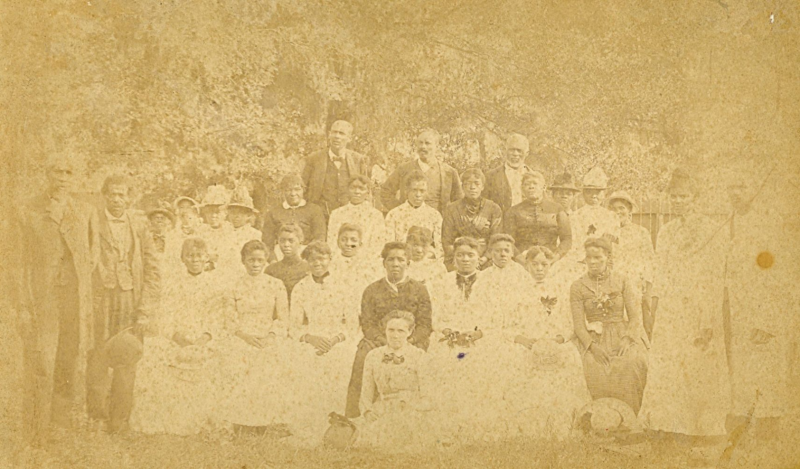How Houston barbecue became part of Juneteenth
The declaration by Union Army Maj. Gen. Gordon Granger on June 19, 1865, in Galveston was short and to the point.
“The people are informed that, in accordance with a proclamation from the Executive of the United States, all slaves are free. This involves an absolute equality of personal rights and rights of property between former masters and slaves, and the connection heretofore existing between them becomes that between employer and hired labor.”
The announcement known as General Order No. 3 effectively freed slaves in Texas more than two years after the Emancipation Proclamation made by President Lincoln. June 19 would become a day of celebration — known as Juneteenth — for African Americans in Texas and beyond.
However, the traditions of Juneteenth, including the community gatherings and associated barbecues, were greatly influenced by the second part of Granger’s announcement.
“The Freedmen are advised to remain at their present homes, and work for wages. They are informed that they will not be allowed to collect at military posts; and that they will not be supported in idleness either there or elsewhere.”
It’s a curious statement. What did it mean? In other areas of the South where emancipation took place, former slaves sought out Union Army military posts for both protection as well as directions for what to do next.
Business leaders and politicians in Galveston did not want former slaves traveling to Union Army headquarters there, so they elicited a concession from Granger: Tell the former slaves to stay where they are. Also, by keeping the former slaves on the plantations, cotton production would continue. Though former slaves were technically free, they were still in many ways bound to their former owners.
This effectively limited their freedom, especially of movement and migration, resulting in documented reports of forced labor at plantations along the Brazos River, including Sugar Land and elsewhere.
However, one opportunity for movement lay to the east. The San Felipe Trail had been hacked out of the wilderness along the southern bank of Buffalo Bayou as a way to transfer cotton and other materials from the plantations to the growing city of Houston and its access to the Gulf of Mexico.
In his book “Pleasant Bend: Upper Buffalo Bayou and the San Felipe Trail in the Nineteenth Century,” local historian Dan Worrall writes, “Large numbers of freed slaves left the Brazos and Colorado plantations and walked east on the San Felipe Trail, headed to Houston.”
They stopped just short of then-Houston proper, west of downtown, on the south bank of Buffalo Bayou in what would become Fourth Ward, also known as Freedmen’s Town or Freedmantown.
With regard to Juneteenth, former slaves were often limited in their ability to celebrate by local authorities who discouraged large gatherings because of concerns over rebellions, as codified in post-war laws known as black codes.

Jack Yates (far left) at Emancipation Park
Houston Metropolitan Research Center
In response to these circumstances, local minister and former slave Jack Yates and other Black church leaders pooled $1,000 and purchased a plot of land in nearby Third Ward in 1872 that became Emancipation Park, where the earliest Juneteenth celebrations were held.
Now that a large space had been acquired for Juneteenth celebrations, there became a need to efficiently feed thousands of guests. The standard way to do this in the early 1900s was through a community barbecue. Long trenches were filled with coals and covered with grates upon which large cuts of meat were slow-roasted.
Pork, beef, chicken and wild game were served with bread, watermelon and sweet red sodas. This technique of roasting and grilling meat for large number of guests established the tradition of barbecue at Juneteenth celebrations in Texas and beyond.
Today, a renovated Emancipation Park is still a focus of Houston’s Juneteenth celebrations.

